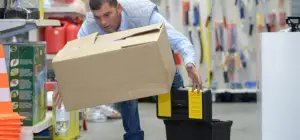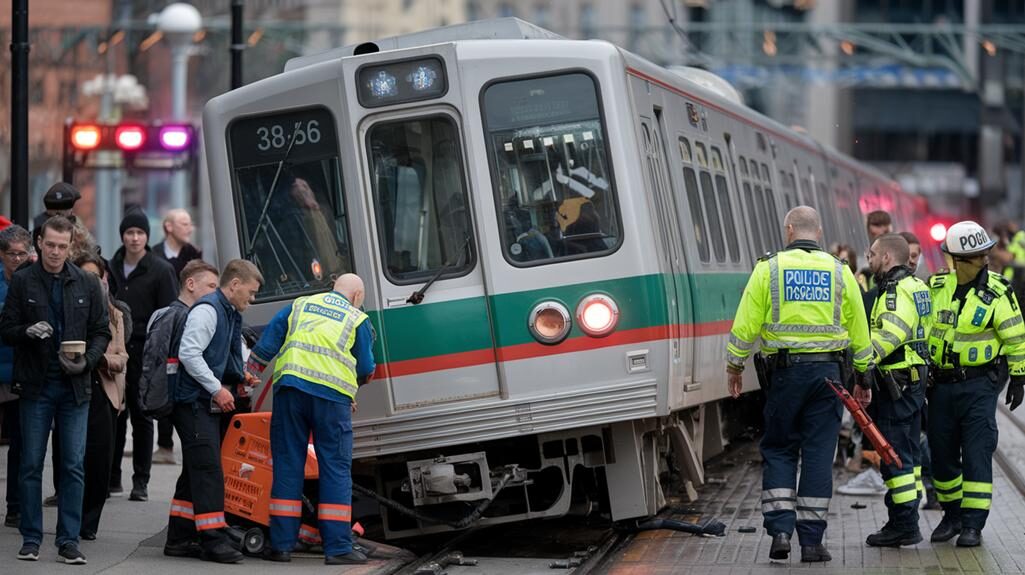 DeMoulas Super Markets, Inc. owns a small chain of supermarkets in the New England area called Market Basket. Like any other grocery store or supermarket, they carry many items in a high-traffic space where accidents are bound to happen. Not every slip and fall accident happens because of the negligent actions of another party. However, when it does, the victim deserves compensation for the injuries and suffering they endured. If you were injured in a slip and fall accident at DeMoulas Market Basket, an injury lawyer will hear your case and help you determine the next step for your claim.
DeMoulas Super Markets, Inc. owns a small chain of supermarkets in the New England area called Market Basket. Like any other grocery store or supermarket, they carry many items in a high-traffic space where accidents are bound to happen. Not every slip and fall accident happens because of the negligent actions of another party. However, when it does, the victim deserves compensation for the injuries and suffering they endured. If you were injured in a slip and fall accident at DeMoulas Market Basket, an injury lawyer will hear your case and help you determine the next step for your claim.
Potential Slip and Fall Causes and Injuries in a Supermarket
The potential risks for a slip and fall accident at a DeMoulas store are the same as any other supermarket. Some examples include:
- Spills on the floor from punctured or broken items, damaged equipment in the frozen food section, self-misting equipment in the produce section, or leaks in the bathroom or from the ceiling
- Dangerous parking lot conditions caused by inclement weather
- Poorly maintained floors, such as worn or torn carpet or rugs, broken tiles, or uneven flooring
- Poorly maintained check-out areas, entrances, and exits
- Precariously assembled displays
- Precariously stacked heavy items on high shelves
- Pallets or carts of stock left in the aisles
The list of possible hazards is evolving. People can slip and trip on practically anything and suffer an injury, and there are plenty of situations where the owner or staff may have been able to prevent that fall with proper safety maintenance. The injuries that people suffer in slip and fall accidents vary greatly in type and severity. Seniors are particularly susceptible to broken bones, such as the wrist, ankle, and hips. A forceful impact on a tile floor can cause head injuries ranging from a mild concussion to a fractured skull. People who suffer from prior knee injuries are more likely to retear a tendon or ligament, and knee damage is a common injury from a slip and fall. You may suffer any one of these injuries or a combination of several injuries, and the damages extend beyond the physical. Medical treatment is expensive, and injuries often result in lost wages, which further add to the financial damage. Sometimes the stress of it all leads to anxiety or depression. The purpose of a personal injury lawsuit is to ensure that all those damages, including your pain and suffering, are fairly recovered.
How Premises Liability Applies to Slip and Fall Cases
The concept of premises liability in personal injury cases, such as slip and falls, applies a duty of care to property owners. It states that property owners have a legal obligation to keep their property in a safe condition for anyone that enters it legally. A supermarket is a public place, which means that everyone is legally allowed on the premises during operating hours. In order to sue on the basis of premises liability, you must prove that the property owner neglected his or her duty of care and did not maintain a reasonable standard of safety on the premises. Then you must prove that his or her negligence led to your injuries.
Proving Negligence
In legal terms, negligence simply means that the property owner failed to use reasonable care to maintain the premises. In the case of a slip and fall at DeMoulas, reasonable care may include employee mandated training in safety standards and regular store walkthroughs during every shift to look for potential hazards. You have a case for negligence if you are able to prove one of the following:
- The property owner or staff knew of the hazard and did not remove it or clean it up within a reasonable time.
- The property owner or staff should have known about the hazard because any reasonable person would.
- The property owner or staff caused the hazard that resulted in your injury and failed to remedy it.
If someone working in the store knew there was a potentially dangerous condition and did not remove it within a reasonable amount of time or place a warning sign near it, the store will likely be found negligent. In most cases, the owner of the property is liable for negligence that happens on the property. However, your actions in respect to the accident are also under scrutiny.
How Comparative Negligence Affects a Slip and Fall Case in Massachusetts
There are two laws that are particularly important in slip and fall cases: statute of limitations and comparative negligence. The statute of limitations for a slip and fall case in Massachusetts is three years. The clock starts from the date of the accident, and if you attempt to file a lawsuit after the deadline has passed, your case will be dismissed. As in all personal injury cases, this also applies to lawsuits filed for property damage. The other important law is comparative negligence, which acknowledges that both parties may have a fault in the accident. If your case reaches the court system instead of settling, the jury is tasked with determining the amount of your award and the percentage of fault you carry for the accident. Then the awarded compensation is reduced by an amount equal to the percentage of fault. For example, if the jury finds you 10% at fault for the accident and awards you $60,000, the 10%, which amounts to $6,000, is deducted and you receive $54,000 in compensation. Massachusetts follows the rule of modified comparative negligence. Under modified comparative negligence, you are eligible for compensation as long as you are less than 50% responsible for the accident. If you are more than 50% responsible, you are not eligible for compensation.
Recoverable Damages in a Slip and Fall Case
The legal term “damages” simply refers to the losses that you incurred because of the accident. When you file a claim or lawsuit, there are specific damages you aim to recover:
- Economic damages include the cost of medical treatment, lost wages, property damage, loss of consortium, and loss of earning capacity.
- Non-economic damages include pain and suffering, emotional distress, loss of enjoyment in life, and mental anguish.
You can also include the cost of future medical treatment and future lost wages if your injury requires long-term care. Economic damages are easy to calculate because they have a numerical value. You can use medical bills, estimates for future care, pay stubs, projections for lost wages based on your most recent tax forms, and repair receipts or estimates for damaged property. Non-economic damages are more difficult because they have no obvious numerical value. The value of non-economic damages usually comes from precedented cases.
How An Experienced Team of Slip and Fall Injury Lawyers Can Help You
The losses incurred from a serious slip and fall accident case carry a heavy financial burden. Victims sometimes do not know where to turn for help. In order to alleviate some of that burden, Jason Stone Injury Lawyers require no upfront fee to get started on your case and get you the compensation that you deserve for your pain and suffering. We work on contingency, so the first element of the Stone Cold Guarantee ensures that we get paid only after you get paid. Contact us today for a free case evaluation.
Not Trusting What You’re Being Told?
Better Phone Stone
800-577-5188
 START MY NO OBLIGATION CONSULTATION
START MY NO OBLIGATION CONSULTATION






